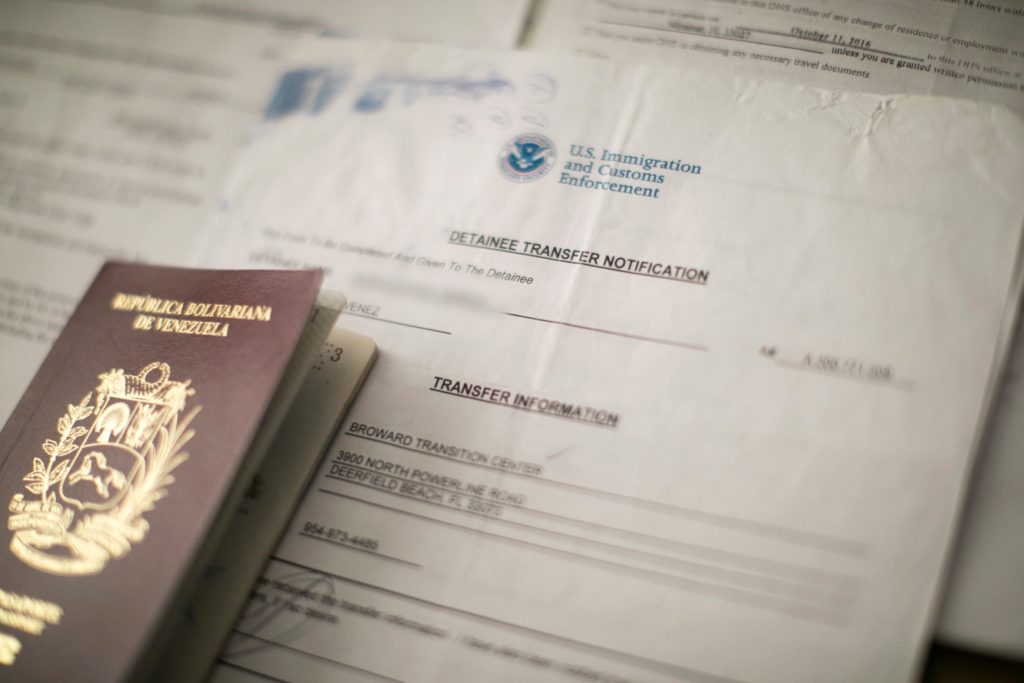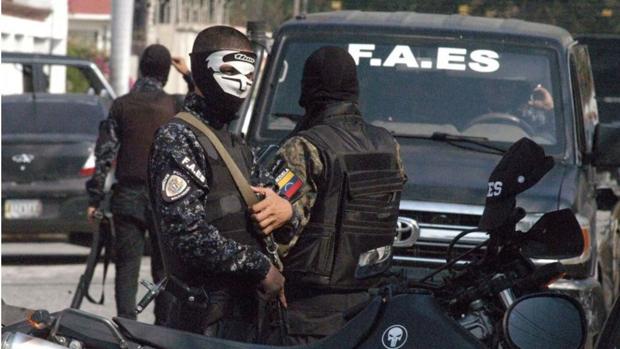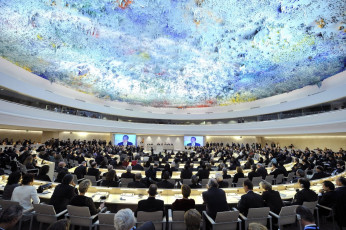Amid a growing international consensus on the need for a negotiated, electoral solution to Venezuela’s crisis, this week saw an important development: signs that the opposition and Maduro government could be negotiating a deal to name a new electoral authority.
On February 26, members of a multi-party National Assembly committee tasked with naming a new National Electoral Council (CNE) announced the names of 10 civil society representatives that will join the committee in evaluating candidates for a new CNE. The preliminary legislative committee, which is made up of members affiliated with the mainstream Guaidó opposition, the breakaway faction led by Luis Parra, and members of the ruling United Socialist Party (PSUV), surprised many analysts by meeting last week.
The fact that they were able not only to meet, but now also to agree on the names of 10 representatives to participate in the CNE naming process, represents a significant development. Efecto Cocuyo has a helpful overview of the constitutional procedures for the Comité de Postulaciones moving forward, noting that the entire process of naming a new CNE could take two or three months. However, there are negotiations happening behind the scenes that suggest these conversations are well underway. Opposition sources have told reporters that they are negotiating a 2-2-1 formula for the CNE, meaning two CNE rectors chosen each by the PSUV and opposition, and a fifth that would be agreed upon by both parties.
While this is an important development, there are many potential pitfalls ahead. The most immediate is the fact that there is no consensus among the Comité regarding the National Assembly’s rightful leadership. Some of its members recognize Guaidó as National Assembly President, while others recognize Parra. For now, both the mainstream opposition majority that recognizes Guaidó and the Parra faction are claiming this as a victory. Both National Assembly structures recognized the new Comité in separate statements just minutes apart, but as Tal Cual reports, in order to function eventually the selected CNE rectors will have to be sworn in before one or the other legislative body. Maduro also welcomed the news, hailing it as a success for “political dialogue” and saying he agreed that a new CNE should be named by the National Assembly (without specifying which one).
A further complication lies with the allegedly partisan nature of the 10 “civil society” names. Of the selected individuals, all but one (Luis Serrano of the NGO Redes de Ayuda) have been identified as having overt links to the PSUV and opposition political parties—and all five PSUV members are representatives to the disputed Constituent Assembly—a fact that has been noted with caution by civil society organizations like Acceso de la Justicia.
Humanitarian Crisis
- The U.N. World Food Program issued a highly-anticipated report showing that 32 percent of the population is “food insecture” and in need of assistance. The study depicts existing inequalities inside the country, with some more rural and indigenous populations (in Delta Amacuro, Amazonas, and Falcon) presenting a higher percent of food insecurity. The WFP notes that it conducted the study at the invitation of the Maduro government, but that researchers collected data “without any impediment or obstruction.” Nonetheless, the study took place from July and September 2019, meaning today’s situation may be slightly different.
Economy and Security
- Guaidó revealed that after conversations with the presidents of Colombia, Ecuador and Peru, and the minister of foreign affairs of Bolivia, they decided that Venezuela would seek to return Venezuela to the Andean Community (CAN) free trade area and regional integration mechanism. This announcement reverses the decision of Hugo Chávez in 2011 to withdraw Venezuela from the CAN. While this decision must be approved by other CAN members, it is likely to be influenced by concerns regarding ending visa restrictions for fleeing Venezuelans.
- A recent Crisis Group report lists off the main non-state armed actors that operate in Venezuela: Colombian guerrillas, armed pro-government colectivos, paramilitaries, and a range of criminal gangs. The Crisis Group report recommends that any negotiated political solution to the country’s crisis “should urgently address the questions of how to reduce the armed irregulars’ influence and how to stop them from scuttling agreements that the sparring Venezuelan sides may reach.” As each of these groups has different characteristics, dealing with them needs different approaches, and the report gives some initial ideas on how to deal with each actor.
- Maduro announced plans to carry out a large-scale reform in the country’s oil industry. He said a new presidential commission, under the command of the Vice President for the Economy Tareck El Aissami, and with the participation of Defence Minister Vladimir Padrino and other prominent Chavista figures, will be in charge of the changes and oversee their implementation.
- Economic transactions are increasingly made in foreign currency in Venezuela (a process called dollarization). Recent estimations by Ecoanalitica, a Caracas-based research firm, say that 64% of all sales in Venezuela involve foreign currency, mainly U.S. dollars, and are made in cash. In some cities, the use of foreign currency is over 90%.
Sanctions
- Reports in the Spanish press cite an “anonymous administration official” in the Trump administration who alleges that the role of the Spanish government hinders E.U. collective actions to confront the Maduro government. However, the Spanish government continues to insist that it has not changed its position regarding Venezuela. They recognize Guaidó as interim president, and despite the changes in Venezuela, they continue to have the objective of free and democratic elections in Venezuela.
- Maduro’s government continues to rely on Russia’s help to evade U.S. oil sanctions. After the U.S. government sanctioned the Geneva-based Rosneft Trading S.A., a subsidiary of the Russian oil giant Rosneft, the Russian company shifted to another affiliate, TNK Trading International S.A., to transport and trade Venezuelan crude oil. TNK is not currently sanctioned, but U.S. authorities have said it will soon be targeted. This move show the complexity and likely unachievable nature of the Trump administration’s strategy of entirely cutting off Venezuela from the international oil market. Elliott Abrams, the U.S. Special Envoy to Venezuela, has claimed that Trump is ready to intensify sanctions on companies like TNK that help Maduro evade sanctions. Trump during his visit in India confirmed that his administration plans to take some “very serious sanctions” on Venezuela without giving any further details.
Migration
- The Colombian government has released a new report showing that, as of December 31, 2019, there were roughly 1.8 million Venezuelans in the country. Of them, 58 percent (just over one million) are in the country without regular status. Meanwhile, a report by the Observatorio del Mercado de Trabajo of Colombia’s Externado University shows that around 75 percent of Venezuelans in the country are working in the informal sector.
- Peru’s foreign minister Gustavo Mesa-Cuadra told reporters that efforts are underway from various governments to discuss the formation of a international donors’ group that will financially assist Latin American countries hosting the most Venezuelan migrants.
Civil Society
- The indigenous intercultural organization Wainjirawa denounces that the Russian mining corporation Vostokcoal together with the Venezuelan Caminpeg (a military company), plan to start massive exploitation of coal mines in an area that belongs to the country’s indigenous populations. The organization says that the mines are next to a river that is the main water supplier to the indigenous communities, and the exploitation could create severe problems of water contamination together with other significant ecological and social issues.
- In response to recent attacks on human rights group PROVEA from Chavista officials, 150 domestic and international civil society organizations demanded the immediate termination of the acts of “criminalization, intimidation, harassment, disqualification, and aggression” that the Venezuelan state exercise against the civil society organizations in the country.




